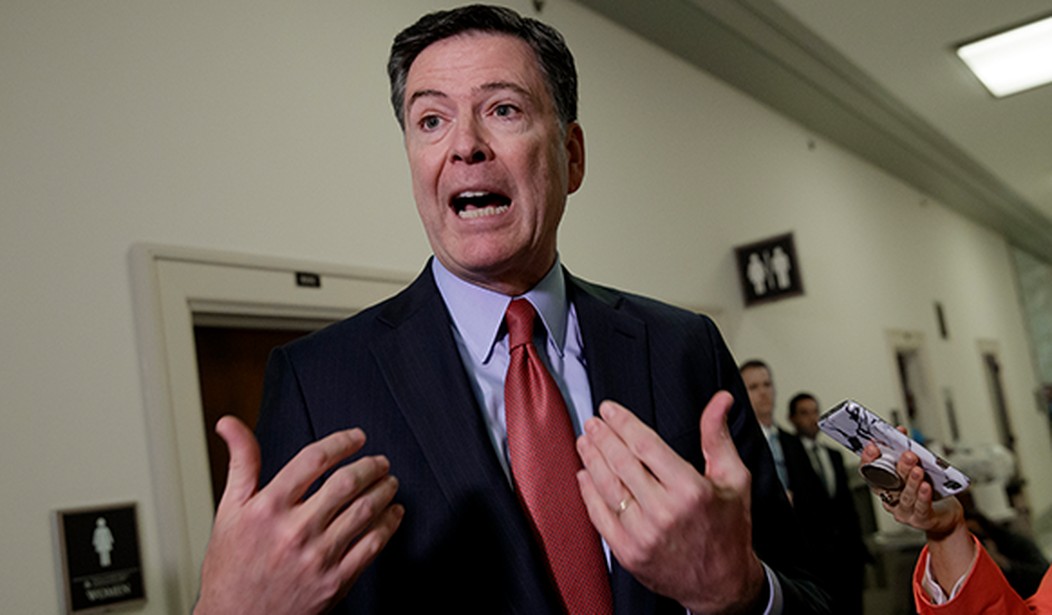Time was running out on the statute of limitations as to statements made by former FBI Director James Comey to Congress in 2020 — statements which the Department of Justice (DOJ) alleges were false and obstructed a congressional proceeding. The task of securing a timely indictment against Comey fell to newly appointed interim U.S. Attorney for the Eastern District of Virginia, Lindsey Halligan — which she did in late September.
Comey pleaded not guilty to both charges and has raised several defenses, seeking to have the case against him dismissed.
READ MORE: DOJ Announces Two-Count Indictment Against James Comey
The magistrate judge overseeing some of the preliminary, procedural matters in the case, William Fitzpatrick, issued an order on Monday compelling the government to turn over all grand jury materials to the defense.
A judge on Monday ordered the Department of Justice to hand over grand jury material to former FBI Director James Comey, an unusual move that the judge said was necessary because of the department's "highly unusual" activity during the secret grand jury proceedings.
Magistrate Judge William Fitzpatrick scolded the DOJ in the order for what he said was a glaring mishandling of evidence presented to grand jurors and possible misstatements by the case's lead prosecutor, Lindsey Halligan.
"The Court is finding that the government’s actions in this case — whether purposeful, reckless, or negligent — raise genuine issues of misconduct, are inextricably linked to the government’s grand jury presentation, and deserve to be fully explored by the defense," Fitzpatrick wrote.
The judge also warned that the grand jury proceedings may have been tainted beyond repair and could cause the court to dismiss the indictment.
And here's the crux of the issue:
The grand jury issue stems from evidence Halligan presented to the grand jury that the judge said improperly stemmed from years-old warrants.
...
When presenting the case to the grand jury, Halligan relied on evidence gathered from 2019 and 2020 warrants that were part of a past investigation while, according to the judge, brushing off rules surrounding how investigators and prosecutors are permitted to review and seize information obtained through the warrants.
Here's a bit more on that from Fitzpatrick's memorandum and order:
Based on the foregoing, the Court makes the following findings:
First, the facts establish a reasonable basis for the defense to challenge whether the Richman Warrants were executed in a manner consistent with the Fourth Amendment and the orders of the issuing court.
Second, the facts establish a reasonable basis for the defense to challenge whether the government exceeded the scope of the Richman Warrants in 2019 and 2020 by seizing and preserving information that was beyond the scope of the warrants, that is, information that did not constitute evidence of violations of either 18 U.S.C. § 641 or § 793.
Third, the facts establish a reasonable basis for the defense to challenge whether the government had the lawful authority to search the Richman materials anew in 2025.
Fourth, the facts establish a reasonable basis for the defense to challenge whether the government’s 2025 seizure of the Richman materials included information beyond the scope of the original warrants.
Fifth, the nature and circumstances surrounding the government’s potential violations of the Fourth Amendment and court orders establish a reasonable basis to question whether the government’s conduct was willful or in reckless disregard of the law.
Fitzpatrick's ruling also highlights concerns regarding statements made by Halligan to the grand jury during the proceedings that led to the indictment, and several other areas of concern, as well.
Collectively, the facts set forth herein and the particularized findings of the Court establish that “ground[s] may exist to dismiss the indictment because of a matter that occurred before the grand jury[.]” Rule 6(e)(3)(E)(ii). The Court need not now determine whether any facts herein have been proven, or whether there is merit to any motion yet to be filed. That task may lie ahead. Rather, the Court is finding that the government’s actions in this case–whether purposeful, reckless, or negligent–raise genuine issues of misconduct, are inextricably linked to the government’s grand jury presentation, and deserve to be fully explored by the defense.
Does this mean the case against Comey is sunk? Not necessarily. See, e.g.:
Generally not a ground to invalidate an indictment.
— Shipwreckedcrew (@shipwreckedcrew) November 17, 2025
Misstatements of law by prosecutors in front of the the GJ is a subject that has a LOOOOONG history of litigation.
Not a new topic and defendants rarely win on it. https://t.co/s8YT0o7C82
What it means, at this point, is merely that the government is obligated to turn the grand jury materials over to the defense so that the attorneys can review them in preparing Comey's defense.
But the DOJ has already filed an emergency motion to stay Fitzpatrick's order to allow it time to file its objections with District Court Judge Michael Nachmanoff. The saga is far from over.
RedState will, of course, continue to follow the case and provide additional updates as warranted.
Update - 6:50 PM Eastern:
Judge Michael Nachmanoff, the district court judge overseeing the Comey case, has, in response to the DOJ's emergency motion, issued a stay of Fitzpatrick's ruling to allow the government to file its objections and Comey's defense team to file their response. The ruling will remain on hold until the objections are heard and resolved.
Editor’s Note: Do you enjoy RedState’s conservative reporting that takes on the radical left and woke media? Support our work so that we can continue to bring you the truth.
Join RedState VIP and use the promo code FIGHT to get 60% off your VIP membership!














Join the conversation as a VIP Member